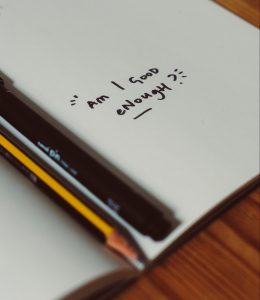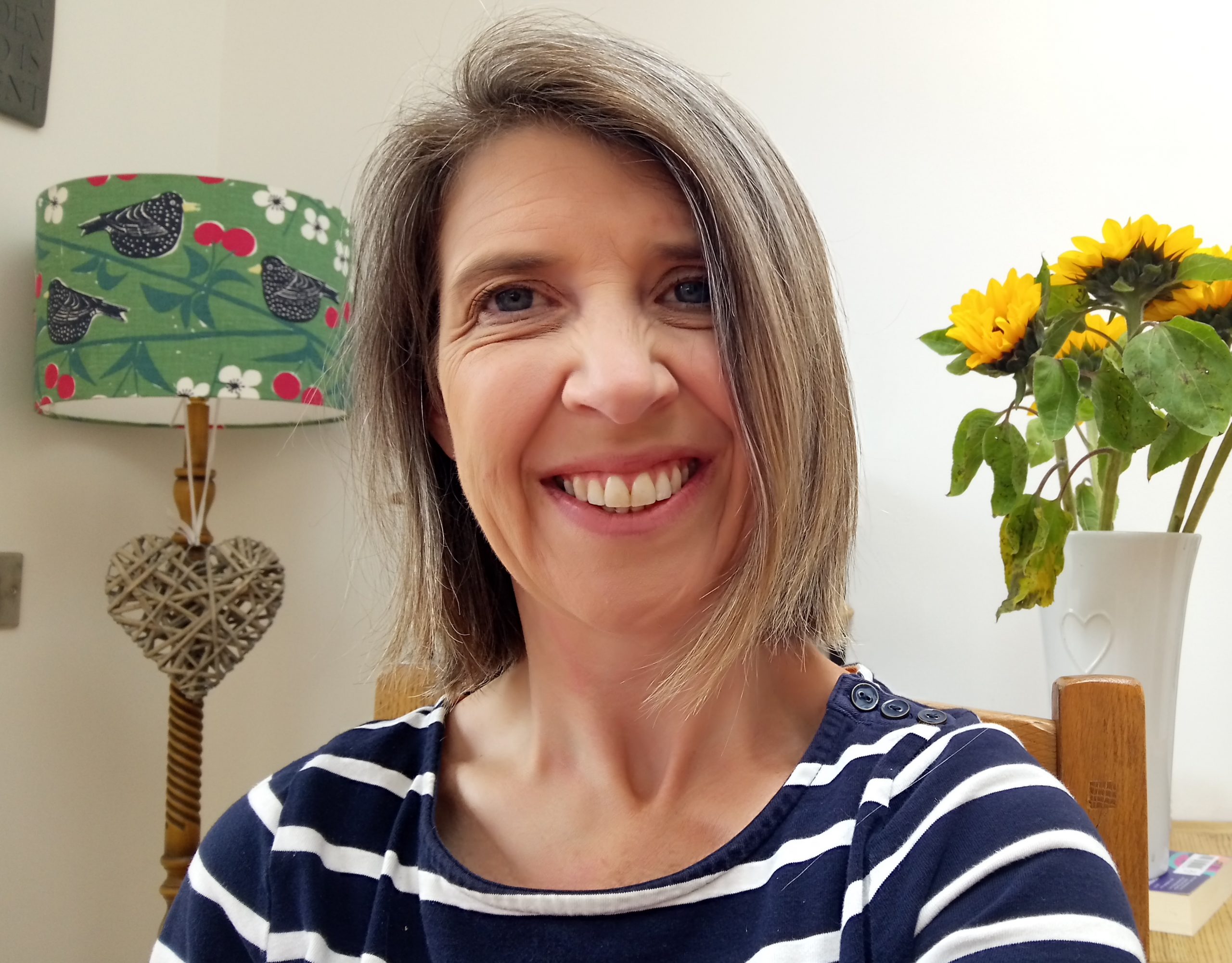For this week's Writer's Wednesday entry we welcome back Leanne Clelland, who confesses she would never normally read a parenting book, and tells us why reading Katharine Hill's latest title made her do some self-auditing on their parenting to date.
‘Freeze! Put your hands up! You’re under arrest.’
I have just received Katharine Hill’s new book, A Mind of their Own, and after a first flick through, have suggested to my three rowdy boys that we might try out some of her excellent interactive family activities.
‘You do not have to say anything, but anything you do say may harm your defence.’
They’re not daft, my boys. They can see that I am angling to turn dinner into a teachable moment, and they are not impressed. Not for the first time, I mutter something about these children having been given a mind of their own without my consent.
I am an ad hoc parent. I suspect that most of us are. We do some things well and other things less well, not through malice or negligence but because life is fast-paced and loud. Our attention is split between family, work, and worries about – you know – the world. For the most part of 2020 and 2021, my parenting was wholly focused on survival. That we would emerge from the pandemic with our health, our emotions and our humour intact. But as we start to creep out of enforced hibernation, it’s perhaps time to do a parental audit. With gentleness, honesty and care, Hill encourages us to apply the same patient focus to parenting as we might apply to learning any other skill. A Mind of their Own is a book about preparation and process.
Resilience after the pandemic
The mental health of our young people was a worry even before coronavirus confined us all to our own homes. Now, a year after the start of lockdown, we’re starting to see the impact of that period on all of us. In 2017, one in nine children were experiencing mental health difficulty. In 2020, that number was one in six. Many of our children are struggling to sleep and to eat. They feel lonely, anxious and sad.
And so we find ourselves at a pivot point. Will the past year leave our children lost, or resilient? Katharine Hill observes that this is an important time for us to be more deliberate about how we interact with our young people. We need to know, she says, ‘what action we can take to help our children be confident, resilient and emotionally healthy adults’. And those actions are not, as my children intuitively observed, about randomly testing out a few activities on a whim and hoping that one sticks.
Hill shone a little light on areas of my child-rearing which could do with a bit more attention.
A Mind of their Own covers a wide range of topics including success, failure, friendships, praise, resilience and managing anxiety. Hill does not pretend that life, so long as we put a positive spin on it, is a fairground. She encourages parents to allow children the space and time to explore and own their feelings, and to process those emotions in a healthy way. ‘If we didn’t feel sad, we wouldn’t have empathy; and if  we didn’t feel guilt or shame, we wouldn’t have a moral compass.’ Life is all the joys and all the sorrows, Hill suggests. ‘Resilience’, she says, ‘comes from looking the possibilities of both failure and success in the eye and carrying on regardless.’ Our young people will come good from the pandemic not by being brave, but by being prepared.
we didn’t feel guilt or shame, we wouldn’t have a moral compass.’ Life is all the joys and all the sorrows, Hill suggests. ‘Resilience’, she says, ‘comes from looking the possibilities of both failure and success in the eye and carrying on regardless.’ Our young people will come good from the pandemic not by being brave, but by being prepared.
Hill writes with an experienced wisdom which often, while reading, stopped me in my laissez-faire parenting tracks. I actually sat up straighter as she shone a little light on areas of my child-rearing which could do with a bit more attention. I suspect I am not the only parent who can simultaneously beam with pride that my child is talented in one area and at the very same time glow green with envy that they are not better at something else. Hill pops that little balloon of jealousy, saying ‘Your child’s strengths may not be what you would have chosen, but they come by them honestly.’ I’m ashamed to say that I attempt to pit my boys’ honest strengths against my dishonest desires to compete. It is not my children who want to keep up with the Joneses. It’s me. They don’t even know anyone called Jones.
Hill’s astuteness is evident as she develops this theme of children’s strengths. And it is here where her advice to celebrate the process rather than the prize really comes into its own. Our children have their own unique talents: sportiness, kindness, creativity, bravery. But our role as parents is not to praise their success, which can float away to failure when the wind turns. Rather, by praising their character and effort, we build in our children self-esteem. ‘Having good self-esteem is not about knowing you are perfect but about knowing you are good enough.’
The Gold Standard
When I was a child, my granny’s affirmative response to everything was a droll ‘good enough.’ Will I make you a cup of tea, Granny? Good enough. Will I wash those potatoes for you, Granny? Good enough. Granny, I passed all my exams! Good enough. Even as a child, I knew that was an odd response. There was no shade in it, no exuberance or disappointment. Just, good enough. Good enough is good enough, but it’s arguably not very glamorous.
And yet, in a world where the perception of perfection is the gold standard, where in order to make it our children need to fake it, ‘good enough’ is good. And good, in these crazy parenting days, needs to be enough for all o f us. As adults, we need to stop being part of a culture which celebrates high achievement in place of solid teamwork and reliable friendships.
f us. As adults, we need to stop being part of a culture which celebrates high achievement in place of solid teamwork and reliable friendships.
Hill suggests that we, the parents, can share with our children that ‘the secret of making a true friend … is for them to be the kind of friend they would like to have: loyal, thoughtful, caring, trustworthy and kind.’ And that thoughtful, trustworthy tone echoes throughout A Mind of their Own. This book reads like an honest conversation with the best sort of friend: a non-competitive, non-judgmental ally working towards the same goal of raising a good human who will live and love life to the full.
If ever there was a time, this is the time to up our parenting game. Not necessarily by doing more, but by listening and observing our children – and ourselves – more intentionally. This is the time to be resilient ourselves, and to demonstrate to our young people what that means. A Mind of their Own offers a revision course in parenting for those of us who have been blown a little off track in the past year. Resilience, this book reminds us, is standing on your own two feet, assured of your gifts and weaknesses. Resilience is understanding what it will be to feel the joy or the disappointment, taking a deep breath, and going for it. The pandemic does not need to shape our children’s future emotional health. Now is the time to help them be ready for risk and undaunted by surprise.
Author

Leanne Clelland has been writing for faith organisations since 2010 and now writes for Christian Aid in Scotland. Leanne has just completed a Masters in Theology through Creative Practice at the University of Glasgow. Through life writing and re-imagining the life of Naomi, she considers how women can live through the ups and downs of life without losing faith or hope. Leanne is a big fan of podcasts which make her laugh, think and wonder. She’s a dab hand at scribbling notes for writing projects while hoovering. Leanne lives in Glasgow with a household of boys who make her giggle every day.


